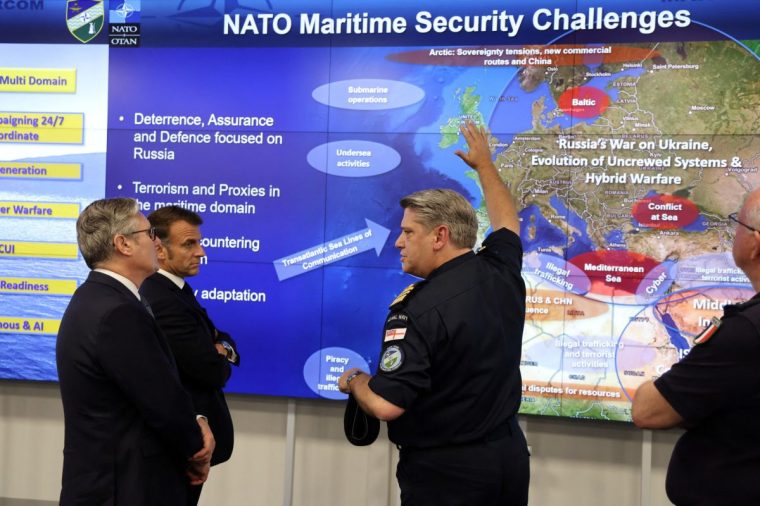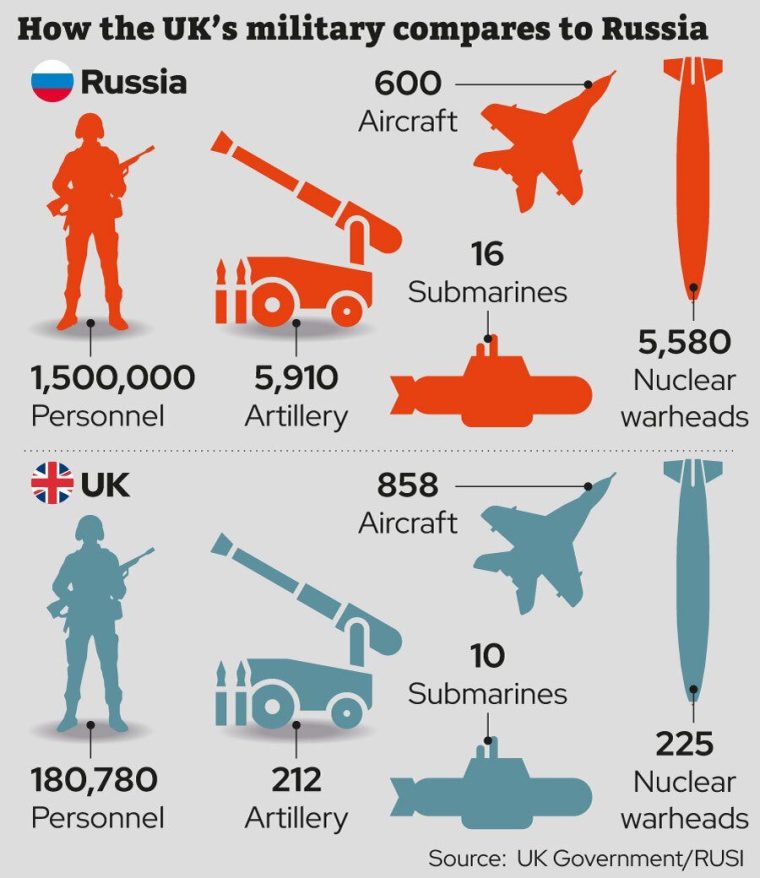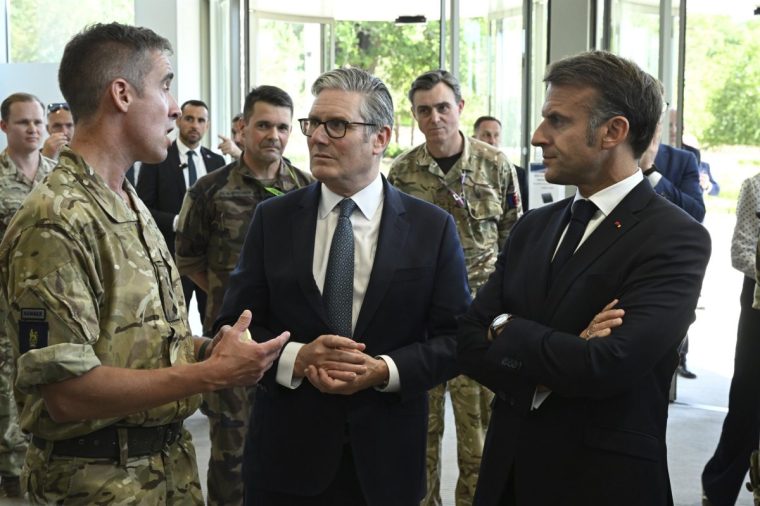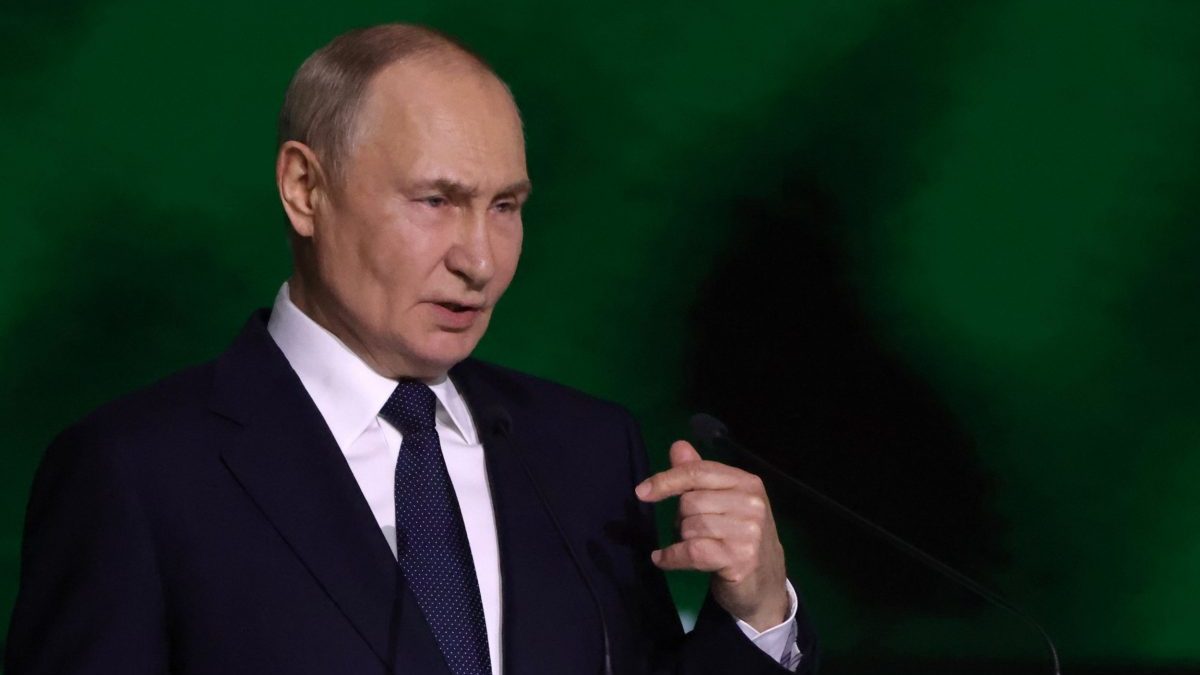Britain and France are deepening their nuclear weapons co-operation to respond jointly should European allies come under ‘extreme’ threat
Britain and France unveiled a historic nuclear security pact on Thursday, joining forces to face an increasingly dangerous global landscape.
Sir Keir Starmer and Emmanuel Macron announced that, for the first time, the two countries would co-ordinate the deployment of nuclear weapons in response to an “extreme threat” to European allies.
As part of the agreement, London and Paris will co-ordinate policies and more closely align their nuclear doctrines, while each retains control of its own arsenal.
“There is no greater demonstration of the strength and importance of our bilateral relationship than our willingness to work together in this most sensitive area,” reads the joint UK-France statement on the declaration.
“Our adversaries will know that any extreme threat to this continent would prompt a response from our two nations,” Starmer said standing next to Macron at the British military headquarters in Northwood, north-west London.
“It’s a message that our partners and adversaries must hear,” said Macron, who was wrapping a three-day state visit to the UK.
 Macron and Starmer being briefed by a Nato official at a military base in north-west London this week (Photo: Ludovic Marin/AFP)
Macron and Starmer being briefed by a Nato official at a military base in north-west London this week (Photo: Ludovic Marin/AFP)
The agreement, called the Northwood Declaration, is the most significant revision of the doctrine between Britain and France since 1995, when prime minister John Major and French president Jacques Chirac agreed to deepen nuclear co-operation.
It comes as Russia is escalating its aggression, and the United States appears to be retreating from its traditional level of engagement with European allies. Europe needs to “step up” and do more for its “collective defence”, Starmer said.
Although a member of Nato, France has traditionally kept its nuclear weapons under national control, separate from Nato’s integrated military command. This means that France decides independently how and when to use its nuclear arsenal – a concept called “strategic autonomy”.
The UK’s nuclear weapons are more closely tied to the alliance’s collective defence strategy. Britain’s nuclear force is often described as a “contribution to Nato’s deterrent”, meaning it helps deter attacks on all Nato members.
 Nato’s nuclear arsenal vs Russia’s
Nato’s nuclear arsenal vs Russia’s
Currently, Russia has the largest stockpile of nuclear warheads in the world, estimated at approximately 5,580 – with around 4,380 of them operational, according to the Federation of American Scientists. But only 1,710 are “deployed”, or ready for use.
But it is dramatically outstripped by the collective military capabilities held by Nato 32 member countries – particularly as the US is the alliance’s primary nuclear guarantor, with its arsenal deployed across Europe under shared defence arrangements.
France is also a nuclear power but it currently does not use its nuclear capabilities for Nato-wide defence.
France’s nuclear capability has been seen as complementary to Nato’s deterrence, reinforcing the alliance’s broader strategic posture. But this deal with the UK could mean more formal alignment.
A nuclear steering group will be established “to provide political direction” for the UK-France pact, led by the French presidency and the UK Cabinet Office to co-ordinate “nuclear policy, capabilities and operations”.
 Starmer and Macron at a maritime command centre in London (Photo: Leon Neal/AP)
Starmer and Macron at a maritime command centre in London (Photo: Leon Neal/AP)
The US State Department assessed in 2024 that the Russian military possesses between 1,000 and 2,000 nuclear warheads for non-strategic systems, while non-governmental organisations estimate approximately 1,550 warheads for these weapons.
The US has deployed a similar number of nuclear warheads, with the total estimated to be approximately 1,770.
The British and French nuclear arsenals are considerably smaller.
The United Kingdom has a total stockpile of 225 warheads, with 120 deployed, according to the Federation of American Scientists. France possesses 290 warheads, of which approximately 280 are operationally deployed.
“Our nuclear forces are independent, but can be co-ordinated and contribute significantly to the overall security of the alliance, and to the peace and stability of the Euro-Atlantic area,” the two countries said in the joint statement.
In addition to the renewed nuclear agreement and revamped joint force, France and Britain have also committed to restocking their supplies of Storm Shadow missiles.
The two nations have supplied these long-range weapons to Ukraine, enabling Kyiv to carry out strikes deep inside Russian-held territory.
